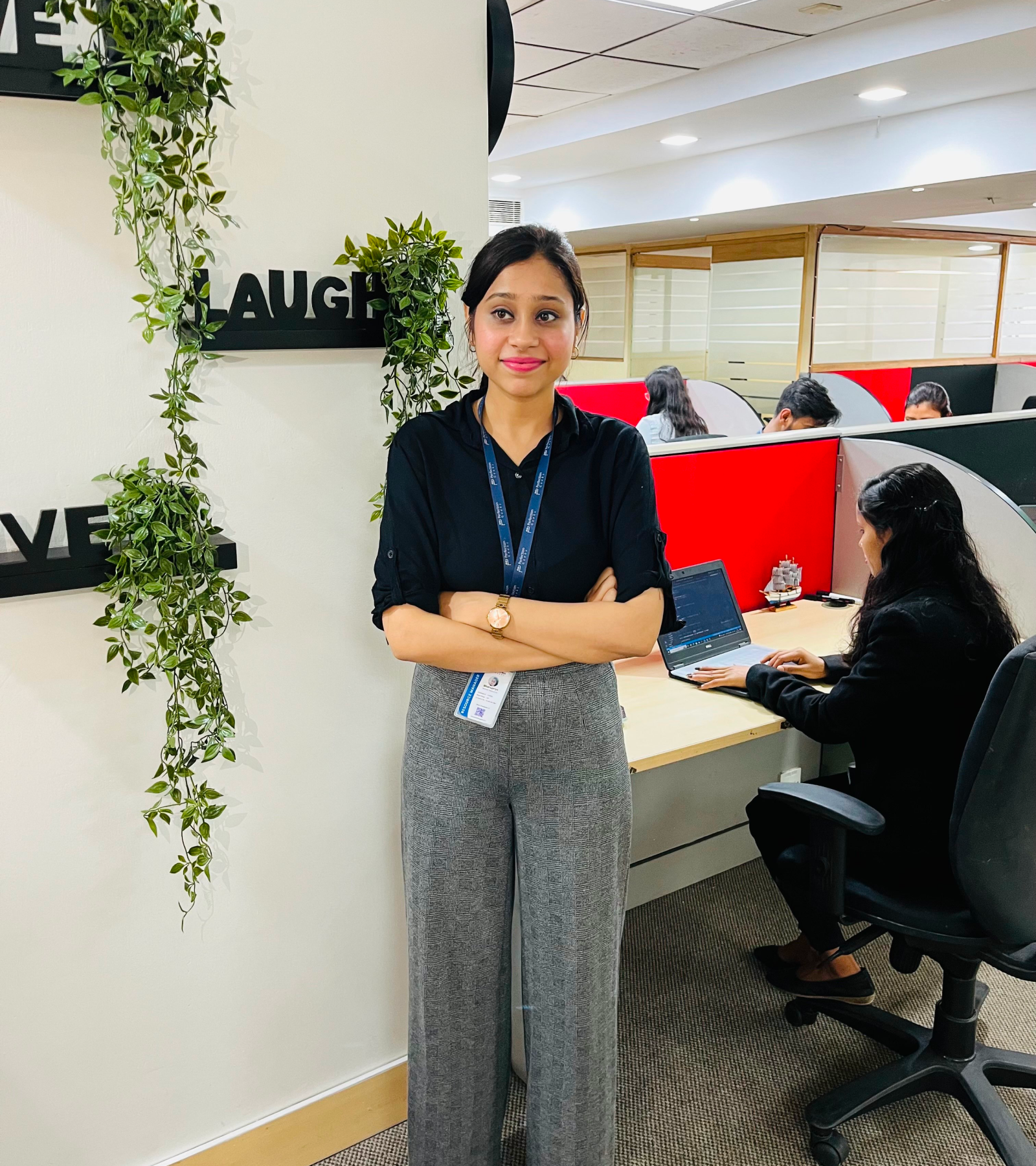Blockchain App Development Company in the Middle East: Benefits, Use Cases, Process, Costs

Sept, 17, 2024 11:56 PM
Blockchain App Development Company in the Middle East: Benefits, Use Cases, Process, Costs
More than three-quarters (38 percent) of US workers claimed they use blockchain technologies commonly used in their workplaces. Another 44% believed that the technology could become widely used within three years. 18% said they were longer than 3 years from being widely utilized within their company. Blockchain App Development Companyis widely spreading and helping industries.
Blockchain adoption is growing rapidly, but it requires understanding what blockchain technology does, the way it operates, and the benefits it can bring to various industries like the financial sector, marketing, retail, advertising, and digital health.
How does Blockchain Work?

Blockchain can be described as a secure, tamper-proof ledger built on cryptographic principles. It's designed to increase trust in the accuracy, as well as security, along with the speed at which transactions are completed.
Blockchains arrange their entries sequentially. Each entry contains encryption of the latest information, which is then merged with encryption from the previous entry. The combined encryption of the two entries becomes the primary portion of the entry that follows. This type of sequential code provides the highest degree of security as well as time-stamping. Data is generally encrypted using hash codes. Value is stored in digital tokens.
What are the Advantages of Blockchain?
Blockchain is a safe, reliable, transparent, and effective way to share information across many parties.
- Blockchain cannot be changed or reversed. This means users can be confident in the information that they receive.
- Additionally, its secure nature helps protect the users against identity theft, which makes it appealing to both businesses and consumers alike.
- Blockchain allows businesses to make transactions in real-time anytime throughout the year, all year long. This is in contrast to transactions and bank transfers that can only be made during business hours and have cut-off times.
- Blockchain can reduce costs for businesses, specifically businesses that deal with large volumes of transactions with high value, which can cause fees to pile up.
What are the Applications of Blockchain Technology Across Different Industries?
The possibilities for blockchain's use extend across all industries, including retail, financial services marketing and advertising, and healthcare. Here are a few examples:
- In the financial sector, blockchain speeds up settlement to real-time (eliminating the risk of exchange rate fluctuations in cross-currency transactions) and allows the use of real-time transactions. Additionally, it has applications to simplify the process, like the tracking of the origin of bank guarantee letters and credit between parties and also executing smart contracts, which makes reports faster and automates compliance.
- Blockchain is the engine behind cryptocurrency, which are digital currencies that are managed by an uncentralized network that results in less expensive and quicker transactions.
- Retailers use NFTs as digital assets that are stored on the blockchain to interact with their tech-savvy customers as well as fans of their brands who are looking for exclusive merchandise or experience.
- Luxury resale stores are also utilizing blockchain to prove that their products and to ensure that ownership transfers are more transparent.
- In the field of marketing, blockchain could be utilized to improve your security as well as transparency surrounding the sharing of data about customers, whether between a client and a business or between two businesses.
- Blockchain can also be utilized to eliminate the risk of fraud and other trust-related issues when it comes to buying ads online.
- Blockchain offers a broad variety of healthcare applications, which include the improvement of payment processing, electronic medical records, directories of providers, as well as the exchange of information and data.
What are some instances of the application of blockchain technology across different sectors?
- JPMorgan has established an internal team within its Onyxunit to create and commercialize blockchain-based products and services.
- Bitcoin is among the most popular cryptocurrency providers that rely on blockchain technology to run their businesses.
- Brands that specialize in luxury retail like Tiffany & Co., Dolce & Gabbana, and Gucci have played around with NFT projects. Nike even purchased NFT company RTFKT in 2021.
- The healthcare bigwigs Humana, MultiPlan, and UnitedHealth Group formed Synaptic Health Alliance, which examines blockchain technology in healthcare. The company has also been working on a blockchain-powered provider directory system.
- IBM and Mediaocean formed the blockchain consortium in 2020 to help digital media's supply chain. The consortium brings the agencies, advertisers, and publishers together.
- Google reportedly created a department in 2022 devoted specifically to "blockchain and other next-gen distributed computing and data storage technologies."
Factors Affecting the Cost of Building Blockchain Apps
Here are some of the elements that affect the cost of blockchain app development services in the Middle East.
- Its size App Development Agency (DA) is modest. Smaller companies are smaller than large and medium-sized businesses. The process of creating a portfolio takes a significant amount of time. However, big corporations are required to have a cost estimate due to a variety of reasons, such as the need to keep the inventory of portfolios essential to them.
- The cost of the app is based on the industry. There are a variety of cost-producing variables, like the complicated character of the app and the quantity of parties that are involved in the dApp, as well as the industry-specific requirements for compliance, and so on.
- Intricacy in Blockchain Applications Complexity Blockchain Application: A variety of elements are the reason for the complexity of blockchain applications. Some of them are blockchain platforms and consensus mechanisms. APIs for programming languages and tools for developing applications, UX/UI, and much more. The first thing to think about is to understand and identify the goal of the blockchain app. It is vital to understand the new applications being developed and the current applications, how they could provide better services, and the value of investing in the creation of blockchain-based apps. These factors and issues should be taken into consideration when determining the cost of creating the blockchain-based application.
- Storage costs are expensive. There are a lot of storage options, and they aren't always secure. The cost of storage is the cost of the space required by the storage device to store the blockchain data. It could range from 30GB to 1TB of storage capacity. It may appear like a lot of space, but it will include the wallet and all transactions using the blockchain. The major issue with storage on the hard drive is that, unless backups are kept off-site, there is a risk of being able to lose everything in the event of a crash. It is crucial to determine the storage costs for a blockchain app development company in the Middle East. The application should be able to handle at least a certain amount of users.
- The number of transactions The number of transactions is probably the most important factor in deciding on the scale of the blockchain. The more transactions are made, more data is needed to be stored within the system. If many users are using the app each day, it will result in a rapid and massive scale of the blockchain. Therefore, a clear estimate of the number of users using it and the amount of transactions per day can determine the price of a blockchain app.
- Type of Blockchain Used The kind of blockchain that is used is determined by the features that are required to deliver certain features within the blockchain development service. If a blockchain-based application functions as an online marketplace, in which case Ethereum is used for the transactions and payments, Ethereum can have a significant impact on the cost. Similar is the case for different GAS rates across different nodes.
The Nature of the Blockchain Network
The decision to choose between public and private blockchain networks has a significant impact on the price of blockchain development. Private blockchains require authority from a central authority every time they perform any kind of transaction, which can increase the price of blockchain-related apps. The public blockchain is non-permissible. This means that everyone can take part in the process of consensus. Therefore, the cost is lower compared with the private blockchain.
Decentralization Degree: If the degree of decentralization is minimal, the process is straightforward and the implementation is not as costly. The process of implementing a higher level of decentralization could be more complicated and costly.
Determine the Cost of Blockchain Implementation
Cost estimation for developing blockchain-related projects is a challenge since a variety of factors can affect the final cost. But here are some of the most crucial elements that could help in assessing the costs associated with blockchain-related solutions for development.
Different types of blockchain, including public, private, and consortium models, each with a distinct price for implementation, are readily available. Public blockchains, such as Bitcoin as well as Ethereum, are accessible to all However, they do have more expensive implementation costs because they require a substantial quantity of computer power to run their networks. Contrary to private blockchains, private ones are created for a specific business, which may require less computing power and can decrease the costs of installing.
The level of complexity of the project The price of implementation can vary based on the degree of complexity and complexity of your project. Projects that require multiple entry points, as well as intelligent contracts and complex features like security and privacy, could incur higher costs for implementation.
For instance, an open-source platform like Hyperledger Fabric might need less money to begin a blockchain-related project than a private platform that requires licensing fees. The price of implementation could be more expensive if you hire an experienced team with experience in blockchain development.
Infrastructure costs: costs of infrastructure can affect the development cost for a blockchain-related project. This includes the cost of the storage, network, as well as server equipment, and the cost of power and cooling.
Conclusion
Teams for web development, analysis verticals that integrate, and other features are an element of the development or implementation of blockchain technology.
These aspects describe the range of costs associated with blockchain development solutions. A precise estimation of the cost of developing or implementing any blockchain-related application is crucial. The app's usage cases, the complexity, approach, and use can all impact the final cost.
Although it's not easy to estimate the exact costs involved with Ethereum or Bitcoin application development, based on the needs of your project, the average cost is anywhere between $5k and $500k. For more precise estimates, it is recommended to discuss the security and scope requirements of your blockchain application. You can also connect an API to your blockchain application.




Strategy
Design
Blockchain Solution
Development
Contact US!
USA 
1968 S. Coast Hwy, Laguna Beach, CA 92651, United States
Copyright © 2025 PerfectionGeeks Technologies | All Rights Reserved | Policy



